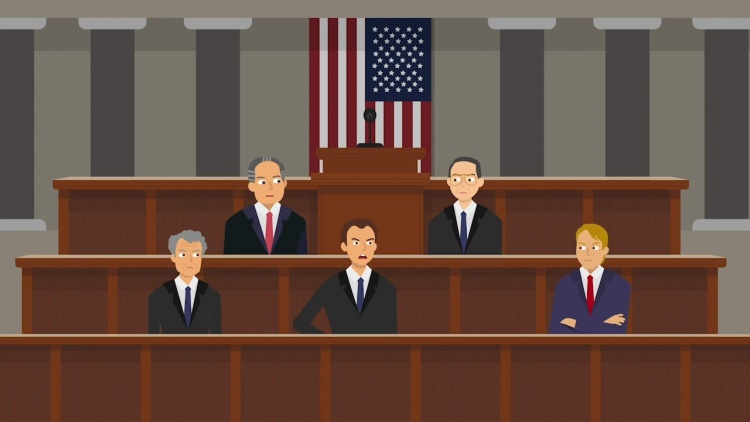Korematsu v. United States
United States District Court for the Northern District of California
584 F. Supp. 1406 (1984)

- Written by Katrina Sumner, JD
Facts
During World War II, a military general, John L. DeWitt, issued an order that required the exclusion of American citizens of Japanese ethnicity from certain areas. Japanese Americans and resident aliens were excluded from these areas and held in detention because their loyalty to the United States was in question. Japanese persons going into these forbidden zones were arrested. Fred Korematsu (plaintiff) was an American citizen by birth who was convicted after going into one of these areas of exclusion. Based on a report by DeWitt, the government told the courts that the exclusion zones and the interning of citizens of Japanese heritage were the direct result of military necessity. Korematsu’s conviction was upheld by the United States Supreme Court in 1944. However, in 1980 Congress established a commission to review the detention of Japanese Americans during World War II. The commission concluded that not only was there no military necessity for the internments, but also other military and government agencies directly contradicted this assertion at the time. The commission found that the detentions were based on racism and hysteria, not military necessity. In addition, a set of documents was found that revealed that the government’s brief to the Supreme Court intentionally concealed contradictory information from the courts as the courts analyzed the issue of military necessity. The United States government (defendant) intentionally omitted contrary facts and assessments from other agencies that showed that DeWitt’s final report presenting the factual justification of military necessity was intentionally false. Based on this new data, Korematsu petitioned for a writ of coram nobis, seeking the overturn of his conviction.
Rule of Law
Issue
Holding and Reasoning (Patel, J.)
What to do next…
Here's why 907,000 law students have relied on our case briefs:
- Written by law professors and practitioners, not other law students. 47,100 briefs, keyed to 996 casebooks. Top-notch customer support.
- The right amount of information, includes the facts, issues, rule of law, holding and reasoning, and any concurrences and dissents.
- Access in your classes, works on your mobile and tablet. Massive library of related video lessons and high quality multiple-choice questions.
- Easy to use, uniform format for every case brief. Written in plain English, not in legalese. Our briefs summarize and simplify; they don’t just repeat the court’s language.





